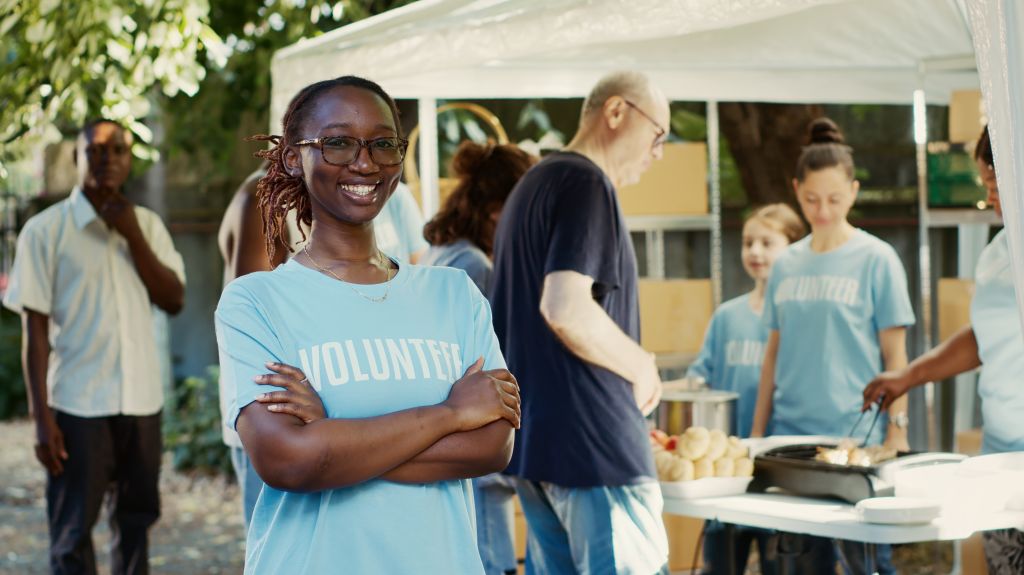Published August 21, 2024 • 11 Min Read
TLDR
-
You’ve just landed in Canada, now what? This checklist provides essential tasks to complete during your first year as a newcomer here in Canada.
-
You will learn about the main admin tasks all newcomers should do, such as getting your Social Insurance Number, setting up a bank account, getting a driver’s licence, finding long-term housing and registering children for childcare.
-
Boost your job search by learning the necessary steps to confirm your professional credentials, building your Canadian professional network and preparing for job interviews.
-
Learn about the various aspects of life in Canada you’ll need to get used to, including the weather, the culture, and the way finances work.
You’ve packed up your life in suitcases, boxes and crates and shipped them across the world. You’ve said goodbye to loved ones, and like many newcomers before you, you’ve come to make Canada your new home. From our team at the Royal Bank of Canada, welcome or bienvenue! We are so glad you’re here.
We know that moving to a new country can be overwhelming, but with a clear plan and guidance, success is right around the corner. To help you get settled, here’s a comprehensive checklist of things every newcomer to Canada should strive to accomplish within the first 12 months of settling into the country in order to be set up for success in your new Canadian life.
Getting settled: Administrative matters for newcomers
Get a SIN
Your Social Insurance Number (SIN) is required to work in Canada and access government services. Apply for your SIN as soon as possible after arriving.
Get a Canadian phone plan (SIM card)
A local phone number is essential for staying connected and accessing services. Many stakeholders will require your Canadian phone number, including your bank, your family doctor, your landlord, your employer or your child’s school or childcare provider. Compare different providers to find a plan that best suits your needs. If you change providers at a later stage, you should be able to keep your phone number.
Open a bank account, get a credit card and start building credit history
First, open a bank account to manage your finances. Compare different Canadian banks and the chequing accounts they offer to find the best newcomer bank account for you. Once you’ve opened your bank account, your bank statement can serve as your proof of address for other administrative tasks.
Many newcomers find that building credit is a much more essential part of life in Canada than it was in their home country. Consider getting a credit card to start building your credit history in Canada, which you may need for many other aspects of your life here.
Review RBC’s financial toolkit to get started — or once settled in, connect with a Newcomer Advisor who can answer your banking questions, guide you through opening bank accounts and explain how to build your Canadian credit profile.
Apply for provincial healthcare
Healthcare in Canada is publicly funded and managed by each province and territory. Citizens, permanent residents, temporary foreign workers and, in some cases, international students are eligible for provincial healthcare. However, you must formally register for it first. Find out the eligibility requirements and registration process from your province’s healthcare website.
It’s also a good idea to look up where the closest hospital and walk-in clinic are in case of emergency. If you experience a medical emergency in Canada, call 9-1-1.
Get a driver’s licence (if applicable)
Within city centers, you will usually find an efficient bus and subway network and, increasingly, a network of cycling infrastructure. But if you live outside of a city center or just prefer driving, you will need a Canadian provincial driver’s licence to drive a car in Canada.
Depending on the country you are from and how much driving experience you have, you might simply need to trade in your foreign driver’s licence for a Canadian licence, or you may need to take the knowledge and road tests. Contact your provincial transportation department to confirm the requirements for transferring or obtaining a new licence.
When you’re ready, you’ll find that buying a vehicle in Canada can be an easy task. If you need a car, decide whether to buy or lease. Consider your budget, transportation needs and the costs involved. Costs generally associated with having your own transportation include insurance, maintenance, fuel, parking and not to forget: winter tires.
Register kids for school or childcare (if applicable)
Canada has a robust public education system that teaches students in both English and French. The public school systems are run by each province and go from kindergarten to postsecondary education. Schooling is mandatory from Grade 1 (though many provinces offer publicly-funded kindergarten from age 4 or 5). If you have children, register them for school with your local school board as soon as possible.
If you require childcare for children too young for school, look for and visit reputable childcare centers in your area. You may have to get on several waiting lists as childcare spots are often in high demand.
Register for settlement services, language classes, a library card and other community resources
There are many public services that can help newcomers quickly integrate. Take advantage of settlement services and newcomer-serving community organizations. New permanent residents are eligible for free Language Instruction for Newcomers to Canada (LINC) classes, which can improve your English or French skills. Settlement services can also provide support in your job search or helping you build community connections. Connect with your local public library: a free library card enables you to borrow books but also gives you access to resources and various community programs.
Finding accommodation
Temporary / Short-term accommodation
Initially, you might need temporary housing while you look for more permanent housing to rent or purchase. Look for short-term rental options such as Airbnb, or consider staying with family or friends.
Permanent / Long-term accommodation (renting / buying)
Once settled, start searching for long-term housing. Decide whether you want to rent or buy and consider factors like location, budget and amenities. This is where you will begin to make Canada your home, so it is essential to consider all aspects of this commitment.
Get the free Newcomer’s Guide to Finding your Home in Canada
Career: Navigating the Canadian job market
Create a Canadian resume
Put your best self forward with every job possibility, big or small. Learn as much as you can about the expectations of the Canadian job market. Make sure you’re using a Canadian resume format, tailor your resume to each application and highlight the relevant skills and experiences to the positions you’re applying for.
Get your credentials assessed
You will find that Canada strongly supports professionals being able to practice in their field when arriving in Canada. However, to ensure all professionals meet one standard of work throughout the country, newcomers must complete an assessment of their education, experience and certifications. The Canadian Information Centre for International Credentials (CICIC) provides comprehensive support for newcomers to understand the assessment process and find the right agency for their field that can provide assessments or additional training if needed.
If your profession requires specific credentials you’ve gained at home or elsewhere, such as medical or legal education and a licence to practice, your credentials will have to be assessed and authenticated by a recognized organization such as World Education Services (WES).
Build your network (to access Canada’s hidden job market)
Networking is critical to finding job opportunities and career progress in the long term. Attend industry events, join professional associations and connect with people in your field.
Apply for (and land) a job
Start applying for jobs that match your skills and qualifications. Use job search engines, company websites and recruitment agencies, as well as your network. Within the communities and sub-groups to which you belong, you will find a myriad of support services geared specifically to help newcomers land their first job in Canada. Avoid common job search mistakes that many newcomers make.
Beyond the basics: Other tasks to build your new life in Canada
Make friends and build your support network
Building a social network is essential for emotional support and integration. Join local community groups, attend events and try to meet new people. Don’t be afraid to take the first step to introduce yourself to your neighbours.
Adjusting to a new culture and climate can take time. In Canada, you will make friends from almost every country in the world. Canadian society values inclusiveness. Learn about Canadian customs and find ways to share your culture, too.
Canadian healthcare (find / get a family doctor and dentist)
Once you are sufficiently settled in after completing major tasks that allow you to access various services, find a family doctor and dentist for regular check-ups and healthcare needs. Even without a family doctor, you should be able to access medical care through walk-in clinics and hospitals, but a family doctor ensures that you see the same practitioner, who is familiar with your medical history every time you need care. Ask your newfound network for the best recommendations.
Note that dental care may not be included in provincial healthcare: many Canadians get additional medical insurance to cover their dental expenses in part or whole.
Adapt to Canadian culture / weather
In Canada, there are some things that we do differently. Join in and learn about the people and places that have laid the foundation for the Canada you know today. You will find that Canadians are social all year round despite the cold.
If you are coming from warmer climates, be prepared for Canada’s long winter nights and short days. Be prepared to dress for the weather and even get assistance if the Canadian winters take a toll on your mental health.
Canadian finances once you’re earning income
Sending funds home (remittance)
For many newcomers, the opportunity to live in Canada also means a chance to provide financial support for loved ones at home. If you are planning to stay in Canada long term, remember to balance this family support with your own personal financial goals. It may be helpful to set financial boundaries with loved ones and provide the support that best fits your financial needs. Research the best ways to transfer money internationally with minimal fees. With various apps at your fingertips, you will find that Canada’s globally integrated banking system makes it easy to help take care of loved ones.
Saving and investing for your future in Canada
It is never too early to plan your financial future. You can easily do this through saving and investing. Open a Tax-Free Savings Account (TFSA), or a First Home Savings Account (FHSA), and once you’ve filed your taxes for the first time, you can open a Registered Retirement Savings Plan (RRSP). Learn about all of the financial products you may need for your first year in Canada.
Taxes in Canada
You will file your taxes for the first time in the spring of the calendar year after you arrive. Tax season runs from late February to April, and you must file your taxes by April 30th to avoid incurring penalties. Keep records of your income and expenses, and consider hiring an accountant or using tax software to file your taxes.
Making a home in Canada
To avoid being overwhelmed by your move to Canada, you can use this checklist as a guide to your first year here. At RBC, we value the opportunity to help newcomers settle in and be part of Canada’s vibrant society. If you need more assistance, we are also here to help; connect with an RBC Newcomer Advisor to discuss your banking needs, ways to engage with your new community and tips for connecting with community partners.
Please visit the RBC Newcomer Hub for more helpful information to make your transition smoother. Again, welcome and bienvenue — we are so glad to have you!
This article is intended as general information only and is not to be relied upon as constituting legal, financial or other professional advice. A professional advisor should be consulted regarding your specific situation. Information presented is believed to be factual and up-to-date but we do not guarantee its accuracy and it should not be regarded as a complete analysis of the subjects discussed. All expressions of opinion reflect the judgment of the authors as of the date of publication and are subject to change. No endorsement of any third parties or their advice, opinions, information, products or services is expressly given or implied by Royal Bank of Canada or any of its affiliates.
Any information, opinions or views provided in this document, including hyperlinks to the RBC Direct Investing Inc. website or the websites of its affiliates or third parties, are for your general information only, and are not intended to provide legal, investment, financial, accounting, tax or other professional advice. While information presented is believed to be factual and current, its accuracy is not guaranteed and it should not be regarded as a complete analysis of the subjects discussed. All expressions of opinion reflect the judgment of the author(s) as of the date of publication and are subject to change. No endorsement of any third parties or their advice, opinions, information, products or services is expressly given or implied by RBC Direct Investing Inc. or its affiliates. You should consult with your advisor before taking any action based upon the information contained in this document.
Furthermore, the products, services and securities referred to in this publication are only available in Canada and other jurisdictions where they may be legally offered for sale. Information available on the RBC Direct Investing website is intended for access by residents of Canada only, and should not be accessed from any jurisdiction outside Canada.
Share This Article






